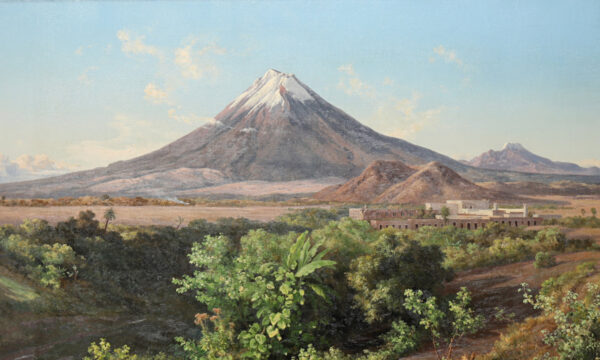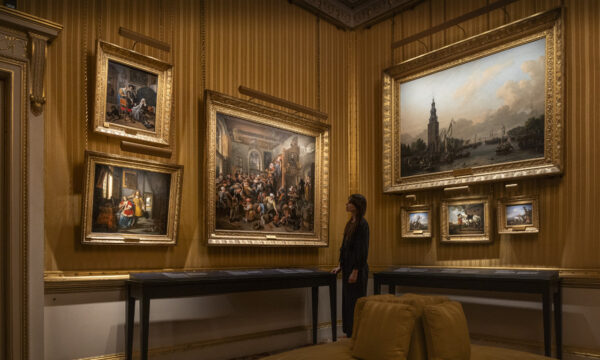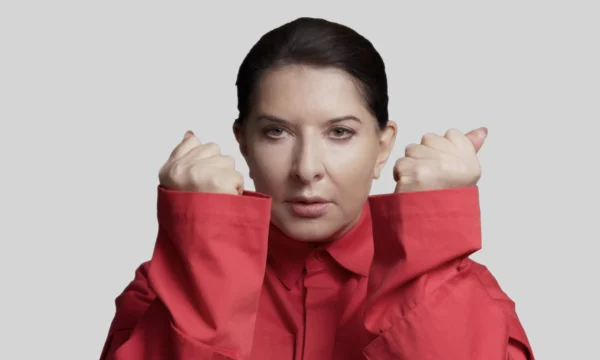Decentralise at Somerset House Online

The last year has seen the global art industry taking steps to address racial inequalities brought into focus by the Black Lives Matter protests. On 1st June 2020 Somerset House released a public pledge “in support of an end to systematic racism and inequality against Black people”. Following this, in October last year, the British cultural institution started the Young Producers programme as part of its Engagement and Skills initiative. Director Johnathan Reekie and his team have outlined that their intention is to open up their cultural programming to new perspectives, while offering training and development to emerging underrepresented creatives. Six young Londoners between the ages of 18 and 30 were selected from over 250 applicants as the first Young Producers Collective. They have been working alongside Comuzi, a design studio and Somerset House Studios resident, and project partner Pinterest to co-produce a digital platform considering Black British history and culture.
On 16th March of this year, with Art Fund support, the Somerset House’s Young Producers collective presented its maiden project, Decentralise, a new interactive digital platform. It was opened alongside a streamed online discussion, involving some of the Young Producers and Comuzi, which provides insight into the inspirations and creative processes behind the concept, with the collaborators also demonstrating how visitors can utilise the interactive platform to produce their own work. The Young Producers’ enthusiasm is evident throughout, as is their ambition to (in the words of one of the collective, Jahnavi Inniss) “create a decentralised, accessible space where people can find out different things about Black British history… through creation, interaction and play.” Alex Fefegha, the cofounder of Comuzi, who also participated in the streamed online discussion, spoke of not wanting their project to be “tokenistic [in] any shape or form.” For him it was crucial to avoid “diluting the story” of Black British history and culture in favour of finding “the best way to tell the story through a digital means”.
It is now possible for the public to visit the interactive platform and play around with the 16 key objects taken from Somerset House archives, each of which references the themes of “Afro-Nowism”, “Afrofuturism”, “Political” and “Disobedient”. Kayleigh De Sousa, another Young Producer, describes how these objects also “pay homage to [past] exhibitions held by Black British artists at Somerset House,” such as Return of the Rude Boy (2014), 2026: Utopian Voices Here and Now (2016), and Get Up, Stand Up Now (2019). The work of major Black creatives like David Hammons and Althea McNish appeared in these shows.
Anyone intrigued by the project is encouraged to try their hand at designing an artwork on the site, while at the same time exploring the featured resource material drawing on Afrocentric themes. The platform is accessible and fun to use, with the option for those sufficiently proud of their artistic creations to save their work to the Decentralise archive, opening the possibility of them being shared via Somerset House social media. Ultimately, the collection will make an important contribution to the documentation of Black British cultural history at the institution as it seeks to re-centre Black people in that narrative. During the online discussion, Jahnavi Inniss perceptively commented: “Sometimes Black British history is presented as alternative. I think its important [to] reposition it as something that’s part of the collective British culture. It’s not separate.”
James White
Photo: Okocha Obasi
Decentralise is available to access online via Somerset House Online from 16th March 2021. For further information visit the exhibition’s website here.
Watch a streamed discussion with the producers of the exhibition here:
























Facebook
Twitter
Instagram
YouTube
RSS